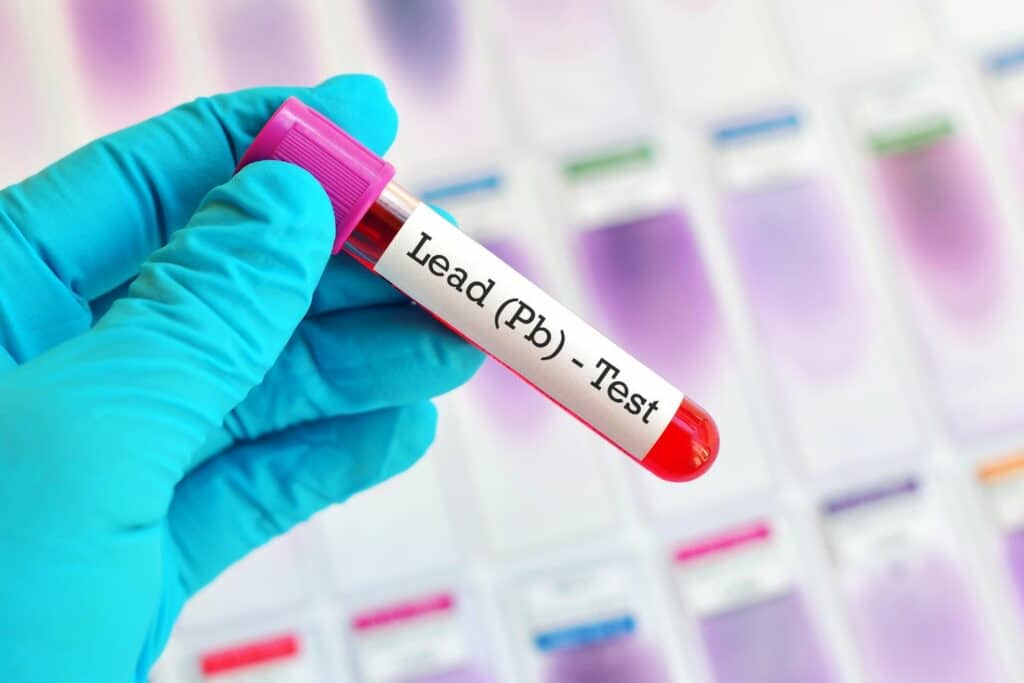From fluoride to lead, shower filters are claimed to remove various water contaminants. But do they do what they claim?
In this article, we look at some of the common pollutants that make their way into your water supply and if a shower filter is an effective way to prevent them from being in your bath water.
Summary
Here’s a table that summarizes the different types of contaminants that can be found in tap water and the best methods for removing them:
| Contaminant | Removal Method |
|---|---|
| Fluoride | Reverse osmosis, distillation |
| Lead | Reverse osmosis, activated carbon block |
| Iron | Reverse osmosis, KDF-85 |
| Copper | Reverse osmosis, ultra-filtration, distillation, or ion exchange |
| Limescale | Water softener |
| Bacterial Growth | KDF-55 |
| Chlorine | Ascorbic acid, KDF-55, activated carbon |
| Chloramine | Reverse osmosis, catalytic carbon filtration |
| Volatile Organic Compounds | Activated carbon |
Fluoride
Added by water treatment facilities to reduce tooth decay, fluoride is a mineral that can be harmful in high concentrations (source). While it is primarily left up to state and local water municipalities to decide on the fluoride levels in drinking water, the Environmental Protection Agency (EPA) has set a maximum contaminant level goal of 4.0 mg/L (source).
Despite some claims by shower filter manufacturers, there is no scientific evidence that shower filters can remove fluoride from water. To remove fluoride from your home’s water supply, you’ll need a whole-house filter specifically designed for this purpose. In addition, the water must undergo reverse osmosis or distillation to remove fluoride.
Lead

Commonly caused by old pipes and fixtures, lead is a contaminant that can harm your health, even in low concentrations. Linked to delays in physical and mental development in children and a host of other problems, lead is a water contaminant that should be taken seriously.
For adequate filtering of lead from your tap water, a filter must be certified to NSF/ANSI Standard 53 or NSF/ANSI Standard 58.
Unfortunately, we could not find a point-of-use shower filter that carries those exact certifications. However, we found one shower filter, the AquaYouth 2.0, certified to NSF/ANSI Standard 177 and NSF/ANSI Standard 372.
AquaYouth 2.0 advertises in its literature that its filter can remove up to 63% of lead. AquaYouth relies on an activated carbon filtration method.
So while you may be unable to find a shower filter certified to remove lead, the AquaYouth 2.0 is the best option currently available on the market.
Dive Deeper: Read the Certified Product Listings for Lead Reduction on the NSF site.
Iron
Iron naturally occurs in the ground and is often used in pipes to transport water. While it’s not necessarily harmful to your health, iron in high concentrations can cause staining on sinks, tubs, and clothing.
Many shower filters claim that they can fully remove iron from water. Still, we could not find any scientific evidence to support these claims, particularly from the CDC, NSF, or other independent organizations. The closest we could find a real answer was from the Minnesota Department of Health, which states that Granular Activated Carbon (GAC) filters do not effectively remove dissolved iron (source). Instead, they recommend reverse osmosis or a whole house filtration system.
It is worth noting that KDF 85 filtration media, which we discuss at length here, can remove iron as water passes through the shower filter.
Copper
Copper has been widely recognized as a common chemical that can contaminate water, per the CDC. Luckily copper can be removed through a few different methods, including reverse osmosis, ultra-filtration, distillation, or ion exchange (source).
When deciding on a shower filter, check if it is certified to NSF/ANSI 53 standard. This certification ensures that the filter will remove necessary copper below the EPA recommended level of 1,300 ppb (1.3 mg/L).
Limescale

It is well known that shower filters are unable to soften hard water. Water rich in calcium and magnesium ions is classified as hard water. This mineral-rich water will build up within pipes and fixtures, resulting in limescale.
While a shower filter will do nothing to treat the water before it comes out of the shower head, it may help to reduce limescale from building up. But, of course, it largely depends on the hardness of the water in your area. The USGS has a great map that shows water hardness across the USA:

We think it’s worth picking up a shower filter for hard water to make cleaning your bathroom a bit easier. Of course, be sure to pick up CLR or another cleaner specifically made for limescale deposits.
Bacterial Growth
Bacterial growth in tap water remains a persistent concern for many people, even though most public water supplies in the US are well-treated and monitored.
An interesting study was done on the efficacy of filtration, specifically the QPoint water filter, and determined the following:
Filter effectiveness depends on regional water quality, and we believe that effective tap water treatment combined with the use of POU filters (introduced at a reasonable cost in healthcare facilities) can considerably minimize waterborne diseases in hospitals and improve patient care.
https://pubmed.ncbi.nlm.nih.gov/33281180/
Many shower filters can remove bacteria, including the Pentair PSF-1WC and AquaBliss SF100. So if you tested your water or simply want a bacteria-free bathing experience, a shower filter is an effective method
Chlorine
For nearly 100 years, water treatment facilities have used chlorine to disinfect water and make it safe for human consumption.
While chlorine effectively kills harmful bacteria such as E. coli, it can also have negative side effects such as dry skin, itchiness, brittle hair, and a burning sensation in the nose and eyes.
Most shower filters can remove or neutralize up to 99% of chlorine within the water. As the chlorine in your tap water passes through the shower filter, it is either absorbed by the filtration media or reacted with a chemical process to render it harmless.
We like to recommend the Sonaki 300VPX, Aquasana AQ-4100, or Vitaclean shower filters for best results.
Chloramine
While chloramine may sound similar to chlorine, this is a completely different chemical compound.
Chloramine, a combination of chlorine and ammonia, is a much more stable compound that is less likely to evaporate. As a result, it has become the preferred disinfection method for many water treatment facilities across the country.
Unfortunately, removing chloramine from water is much more difficult than chlorine. A few methods can be used, but reverse osmosis is the most common and effective, which requires a whole house water filtration system.
Some shower filters may help to reduce chloramine, but it is not as common. We recommend checking out a vitamin C shower filter if you are fine with simply reducing the amount of chloramine.
Volatile Organic Compounds (VOCs)
Volatile organic compounds, also known as VOCs, are a group of chemicals that easily evaporate at room temperature.
VOCs can be found in many household products such as cleaning supplies, paint, or pharmaceuticals. When these products are used, the VOCs are released into the air and can be inhaled.
VOCs can also be found in water, and while they are not harmful when ingested, they can be dangerous when inhaled in large quantities. This is especially important when showering as steam can quickly release VOCs into the air. If you are concerned about VOCs, go with an activated carbon filter. They are generally the best at reducing VOCs.
Conclusion
Many potential contaminants can be found in shower water, but the good news is that there are also many ways to filter them out. By installing a shower filter, you can rest assured that you and your family are safe from harmful bacteria, chemicals, and other impurities.
But before you decide which shower filter is right for your home, we strongly recommend you have your water tested. This will give you a better idea of what contaminants are present and what type of filtration system will be most effective.
